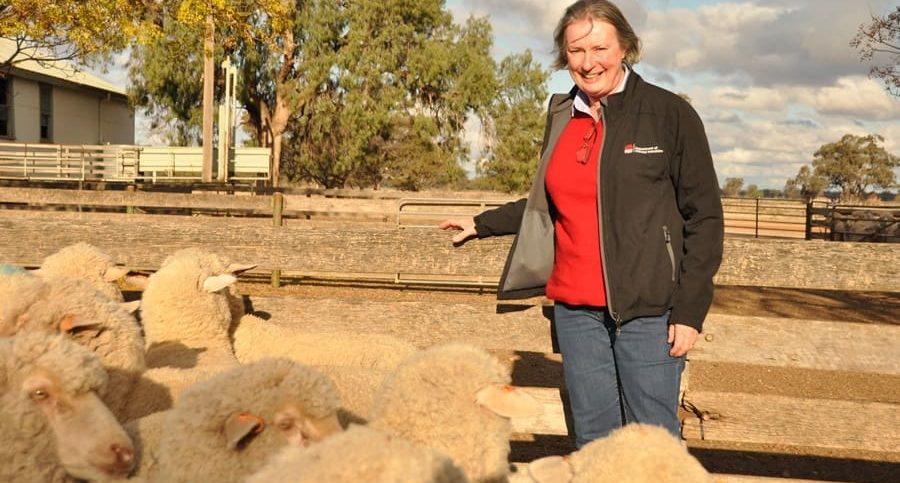
Dr Mortimer’s research showed that Merino producers can breed dual-purpose sheep by using Australian Sheep Breeding Values, appropriate selection indexes and breeding objectives to better meet consumer demand for wool and meat.
NEW South Wales sheep research scientist Dr. Sue Mortimer has been awarded a fellowship with the Association for the Advancement of Animal Breeding and Genetics for her Merino work.
The NSW Department of Primary Industries and Regional Development scientist was honoured for her outstanding contributions to the genetic improvement of the Australian Merino industry at this year’s AAABG conference held in Queenstown, New Zealand.
Dr Mortimer said is a great honour and deeply humbling to be selected as a fellow of the association.
NSW DPIRD said during her career of more than four decades, Dr Mortimer has been a driving force in applying quantitative genetics to sheep breeding, helping shape the future of livestock systems in Australia.
Since joining NSW DPIRD in 1985, she led research on genetic parameters for economically important traits, flystrike resistance, meat quality, and benchmarking Merino genetics using industry data.
Her work has had a lasting impact through initiatives such as the QPLU$ selection lines and the Merino Lifetime Productivity project, DPIRD said.
Dr Mortimer has authored over 150 scientific papers, including more than 40 contributions to AAABG proceedings, and has served as an Associate Editor for Animal Production Science and on technical committees for BREEDPLAN and Sheep Genetics. She has also worked alongside some of the most respected figures in animal genetics, including her PhD supervisor Dr John James, Dr Kevin Atkins, and the late Dr Andrew Swan.
Highlighting the Merino’s central role in wool and sheep meat production in Australia, Dr Mortimer said: “Merinos are the cornerstone of the fine wool industry and have a key role in meat production in Australia.”
“We ask so much of it. It is a brilliant animal,” she said.
Although Dr Mortimer was raised in Sydney with no direct connection to the land, she credits her career choice to a love of reading about the wool industry – even through romantic novels.
“I don’t think that I could have made a better choice for a career or had a better one.
“In return, I would like to think that I have added to the work and impact of many colleagues towards improving Merino breeding programs in Australia.”
The AAABG Fellowship recognises individuals who have made exceptional contributions to animal breeding and genetics. Dr Mortimer’s election as a fellow is a testament to her dedication, innovation, and leadership in the field, DPIRD said.